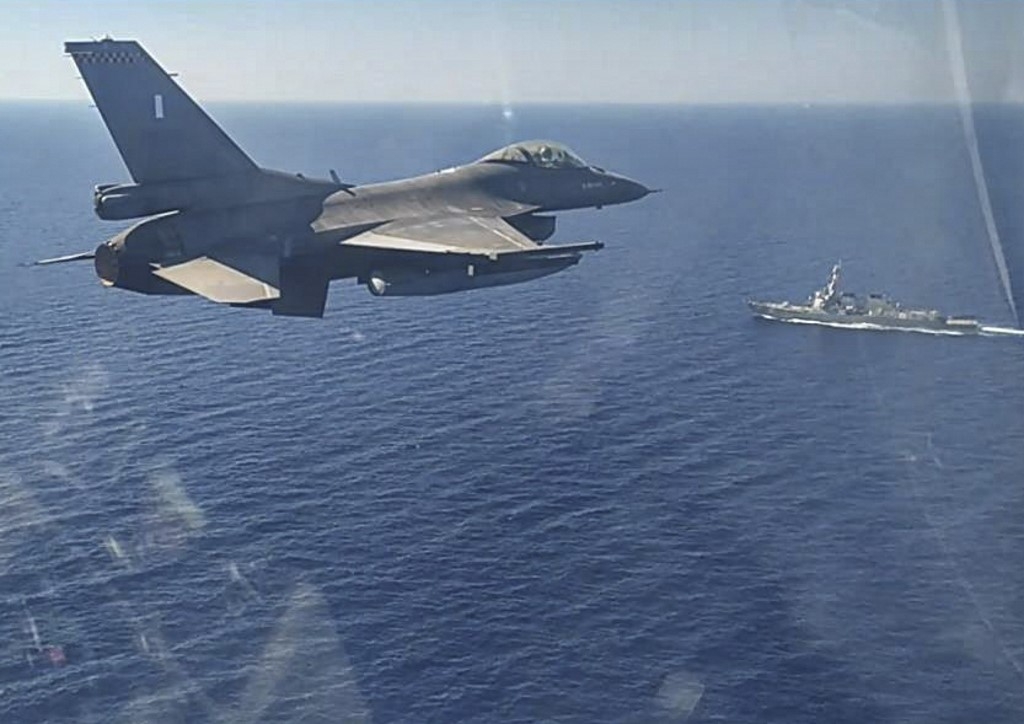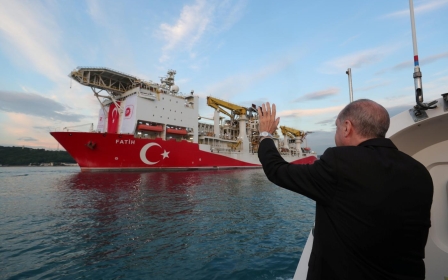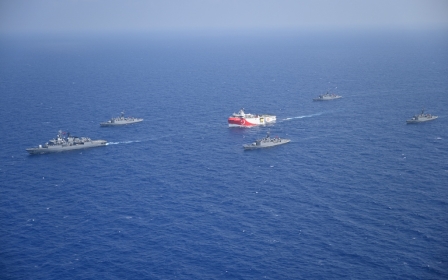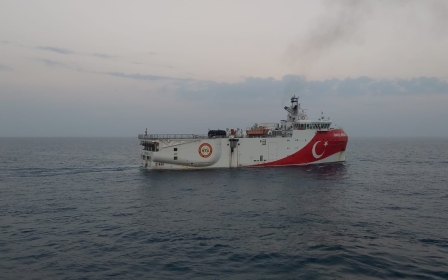Turkey intercepts six Greek F-16 jets in the Mediterranean as tensions rise

Turkey said on Saturday it will hold a military exercise off northwest Cyprus for the next two weeks, two days after it intercepted six Greek F-16 jets in the Mediterranean amid growing tensions with Athens over energy exploration rights.
Video footage posted by the Turkish defence ministry on Friday purportedly showed Turkish Air Force planes preventing the Greek aircraft from entering the area where Turkey was operating. The F-16s had departed from the island of Crete and were heading towards southern Cyprus, the statement said.
On Friday night Turkey issued a Navtex notice - an advisory message to mariners - saying it would be holding a "gunnery exercise" from Saturday until 11 September off northwest Cyprus.
Rival agreements
New MEE newsletter: Jerusalem Dispatch
Sign up to get the latest insights and analysis on Israel-Palestine, alongside Turkey Unpacked and other MEE newsletters
The long-running dispute between Turkey and Greece, both Nato members, flared up after the two countries agreed rival accords on their maritime boundaries with Libya and Egypt, and Turkey sent a survey vessel into contested waters this month.
Both sides have held military exercises in the eastern Mediterranean, highlighting the potential for the dispute over the extent of their continental shelves to escalate into confrontation.
The European Union's top diplomat said on Friday that the bloc was preparing sanctions against Turkey that could be discussed at a summit in late September in response to Ankara's stand-off with EU member Greece.
The measures, meant to limit Turkey's ability to explore for natural gas in contested waters, could affect individuals, ships or the use of European ports, Josep Borrell said. The EU would focus on everything related to "activities we consider illegal," he added.
Borrell spoke in Berlin, where EU foreign ministers met to discuss support for Greece after Athens ratified a pact on its maritime boundaries to counter Turkey's claims to energy resources in the region.
Middle East Eye delivers independent and unrivalled coverage and analysis of the Middle East, North Africa and beyond. To learn more about republishing this content and the associated fees, please fill out this form. More about MEE can be found here.




